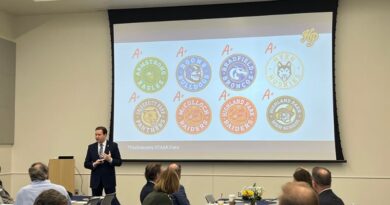Changing With Age: Should I Be Concerned It’s Dementia?
By: Kimberly Knight
The holidays prompt many of us to spend time with our extended family – sometimes including relatives you may not have seen in years.
Maybe you noticed changes in a loved one and thought, “Should I be concerned?” or even, “Do they have dementia?”
These are important questions, but before we go further, it is important to know what dementia is.
Dementia is an “umbrella” term that describes a group of brain diseases that affect a person’s cognitive ability enough to interfere with their daily activities. Similar to how we say “cancer” which may be liver cancer, leukemia or numerous others, “dementia” is a general term that encompasses many brain diseases.
Alzheimer’s is the most common form of dementia, but there are many others, such as frontotemporal dementia, Lewy body dementia, and Parkinson’s to name a few. The Cleveland Clinic estimates that approximately 50% of people aged 85 or older have dementia.
Since memory loss is the most common symptom, let’s look at a couple of other symptoms that are important indicators of dementia to help differentiate between typical and concerning behavior.
Poor reasoning and judgment
Let’s say your uncle gets a phone call from Claire, a salesperson calling to sell a new roof due to hail damage. During the sales pitch, Claire asks for his bank account number and login information saying she needs to verify credit.
Normal Behavior: Those with sound reasoning realize the roofing company may need a down payment, but not their banking information. Realizing it’s a scam, they hang up.
Concerning behavior: A person with dementia has compromised reasoning and cannot differentiate between a reasonable request and this red flag. They give their bank information and get scammed.
Changes in mood or behavior
Grandma has always been easygoing. At the holiday dinner, one of her grandchildren makes the mistake of saying her turkey is terrible.
Normal behavior: Grandma lets them know she’s been cooking great turkey since before they were born, and that it is not polite to insult the cook.
Concerning behavior: Grandma screams at the grandchild and throws her napkin at them. Then to everyone’s shock, she continues and makes an inappropriate comment about her daughter’s husband.
These are just two of many non-memory issues associated with dementia.
If your family needs support for an older loved one living with dementia, contact The Senior Source’s Caregiver Support Program at 214-823-5700 or csp@theseniorsource.org.
Kimberly Knight, caregiver support program director at The Senior Source, holds a master’s degree in social work from the University of Texas at Arlington and is a Certified Alzheimer’s Disease and Dementia Care Trainer (CADDCT) and Certified Dementia Practitioner (CDP).










